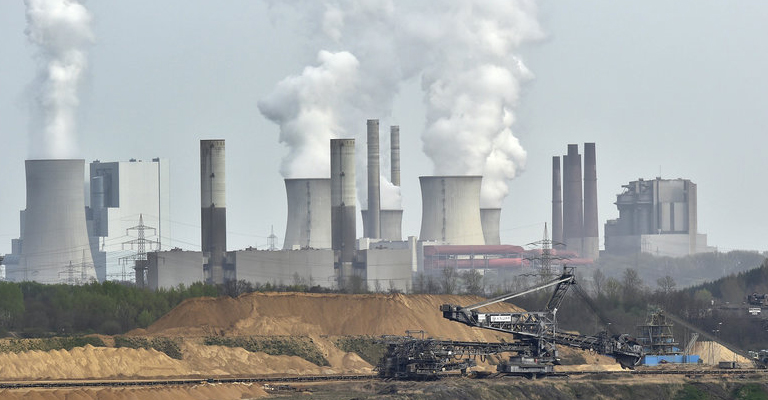News
Germany to Shut Down All 84 of Its Coal Plants in Renewable Energy Transition Plan

Germany is launching an ambitious effort to phase out all of its coal power generation by 2038, and will close all 84 of its coal-fired power plants to reach that goal.
No further coal plants will be built and additional protections will be extended to protect the country’s forests.
The bold move, announced this past weekend by a government-appointed body known as the Coal Commission, is a strong gesture from one of the world’s top coal consumers that signals the country’s seriousness in the fight against climate change and for the adoption of renewable energy.
The plan, which Chancellor Angela Merkel is expected to adopt, will also see over $45 billion committed toward easing the transition to clean energy and creating up to 5,000 new jobs in the coal-producing regions of Brandenburg, Saxony, Saxony-Anhalt, and North Rhine-Westphalia.
The plan will see 65 to 80 percent of the country’s power come from renewable sources by 2040, with the rest likely coming from imported natural gas.
The burning of coal accounted for over 42 percent of the country’s energy in 2016, according to the International Energy Agency, but it also spews huge amounts of carbon dioxide and other gases into the air, contributing greatly to global climate change.
Germany’s coal plants, that fuel the fourth-largest economy in the world, are presently the largest source of carbon dioxide in Europe. Germany is also the sixth biggest CO2 emitter in the world.
Following 21 hours of negotiations that ended Saturday, the chairman of the government commission, Ronald Pofalla, heralded the agreement, according to the Los Angeles Times:
“This is an historic accomplishment … It was anything but a sure thing. But we did it. There won’t be any more coal-burning plants in Germany by 2038.”
Environmental group Greenpeace Germany, which participated in the Coal Commission alongside other environmental groups, welcomed the government announcement in a statement, but also criticized the 2038 goal as “unacceptable.”
In the statement, Greenpeace International Executive Director Jennifer Morgan said:
“Germany has finally stepped up and joined most of its European neighbors in setting a phase-out date for coal, and it deserves credit for that. But this target of 2038 is not going to protect Germany or other countries from the dangerous impacts of climate change. Every week we see more and more evidence that climate change is accelerating, bringing with it forest fires, violent storms and other extreme weather. That should be pushing countries to increase their ambition, deliver more and deliver it faster.”
“Switching off the last coal plant in 2038 is not fast enough to answer what tens of thousands of people have been asking when they demand a solution to the climate emergency,” Greenpeace Germany executive director Martin Kaiser said.
“We will continue to push for a faster coal phase-out, to protect the planet and people everywhere from the life-threatening impacts of climate change,” he added.
Since 2000, when Germany relied on coal for 53 percent of its power, the country has seen a boom in renewable energy technologies, with wind and solar photovoltaic growing to generate over 18 percent of its power and biofuels providing 7 percent of German energy.
The country abandoned nuclear power following the Fukushima disaster in Japan, and is on track to shutter its nuclear plants by 2022.
Since last year, renewable energy provided more power to Germany than coal for the first time ever.
Typos, corrections and/or news tips? Email us at Contact@TheMindUnleashed.com
